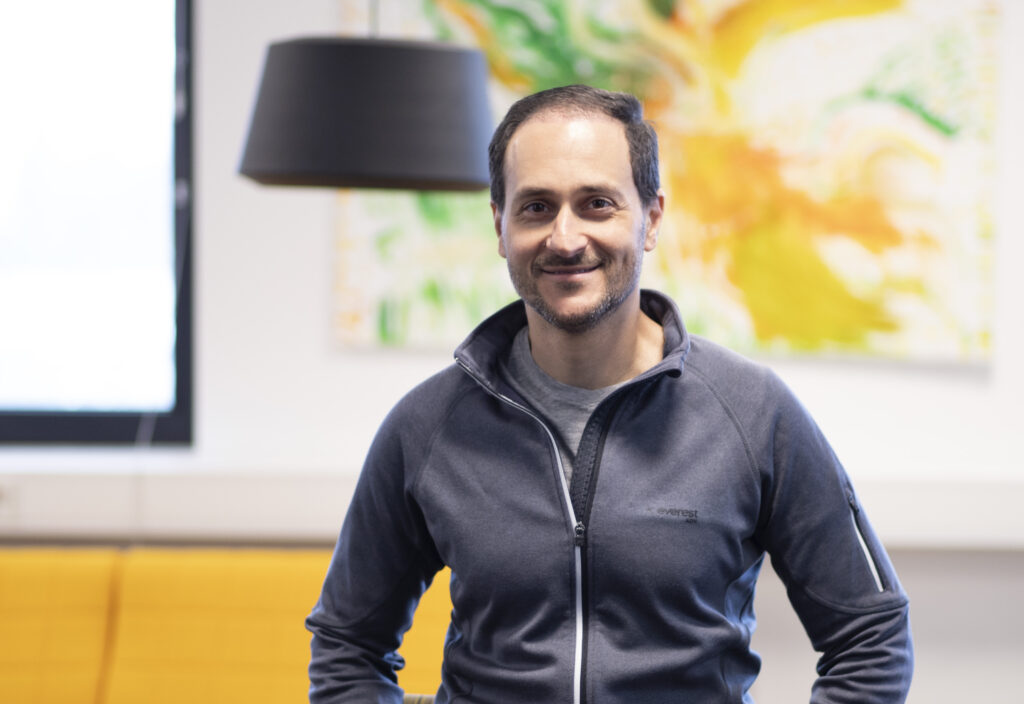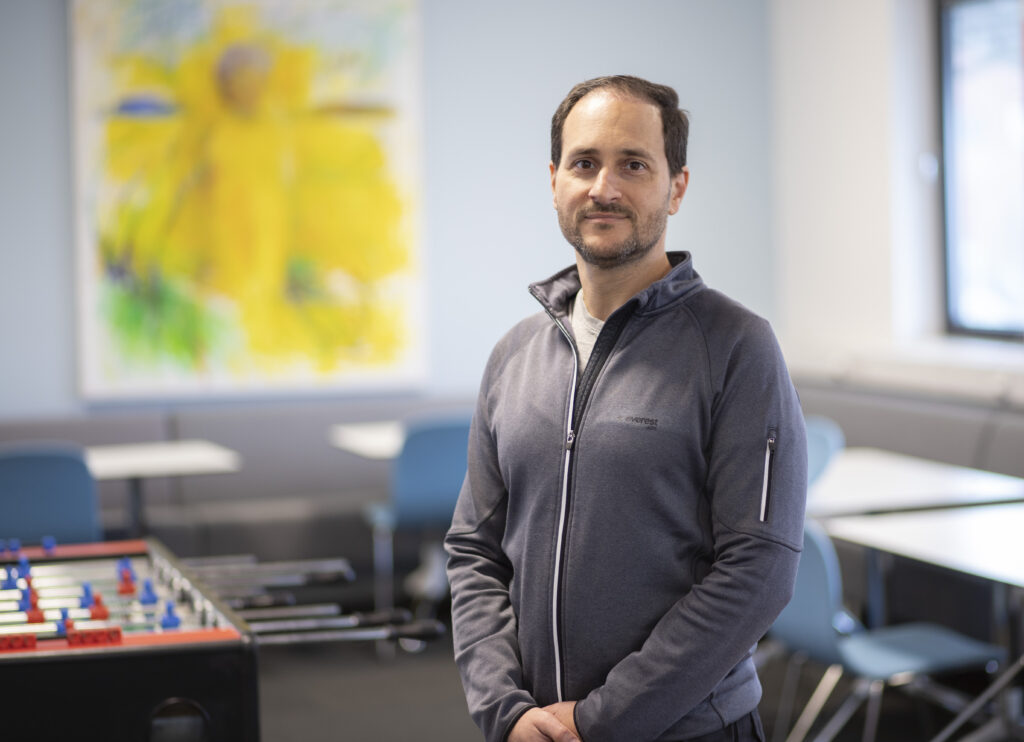
Being listed as one of the world’s 2% most relevant scientists by Stanford University two years in a row makes Edison Pignaton de Freitas a great addition to the Recruited Faculty. We spoke with him about networked robotics systems, his work within the Brazilian Army, and his ambitions to create fruitful collaborations within the ELLIIT network.
Edison Pignaton de Freitas, newly appointed Professor in Autonomous Systems at Halmstad University, is one of the latest additions to the highly skilled, internationally competitive group of researchers that make up the ELLIIT Recruited Faculty. He became a member in 2024 and began his activities in January 2025.
What research area are you particularly interested in?
I work in a variety of subjects, most of them related to the networked robotics systems. Within this context, I work with communication for mobile networks, mobile robotics, autonomous systems, unmanned aerial systems, and Internet of Things. My works covering these areas are mostly related to defense systems and precision agriculture, but I have also interest in other areas.
Where did you find your interest in this specific research area?
In my Ph.D. studies I worked with Wireless Sensor Networks (the basic technology behind the Internet of Things) using Unmanned Aerial Vehicles as mobile sensor nodes. Then as Captain Military Engineer researcher in computer science at the Brazilian Army, I worked with unmanned aerial systems, among other defense systems, which drove me to what I do today.
Could you please summarize your work within this research area.
I work in conception of innovative solutions for networked autonomous mobile systems, developing cutting-edge proposals for multi-drone systems and efficient communication for challenging networks, such as the Internet of Battle Things.

Do you have any projects within ELLIIT yet?
Not yet, but I co-supervise a Ph.D. student in the project “Cooperative Autonomous Vehicles” lead by Prof. Alexey Vinel, which deals with the usage of vehicular communication to improve safety in autonomous vehicular systems.
What are your ambitions with ELLIIT in the future?
Contribute with the network developing high-impact projects that fit in the framework, possibly complementing other projects and creating fruitful cooperation with other researchers within the network.
Is there anything else you’d like to highlight?
As I’ve only just arrived, I’m working on establishing connections with industrial partners, particularly those in the defense industry.
I was listed among the world’s top 2% most relevant scientists by Stanford University in both 2023 and 2024. (link below)
And finally, what do you enjoy doing in your free time outside of academia?
In my free time I like to travel, jogging, gym, and when travelling, I always try to dive, to hike, or search for “adventures” in the nature, so to say.
Contact and more
Read more about Edison Pignaton de Freitas’s research and projects, and find contact information here.
Previous Meet the Recruited Faculty
See more interviews from our series Meet the Recruited Faculty here.
Elsevier Data Repository
Read more about Stanford University’s listing of the world’s top 2% most relevant scientists.
ELLIIT project
Read more about the ELLIIT project Cooperative Autonomous Vehicles from call A.
